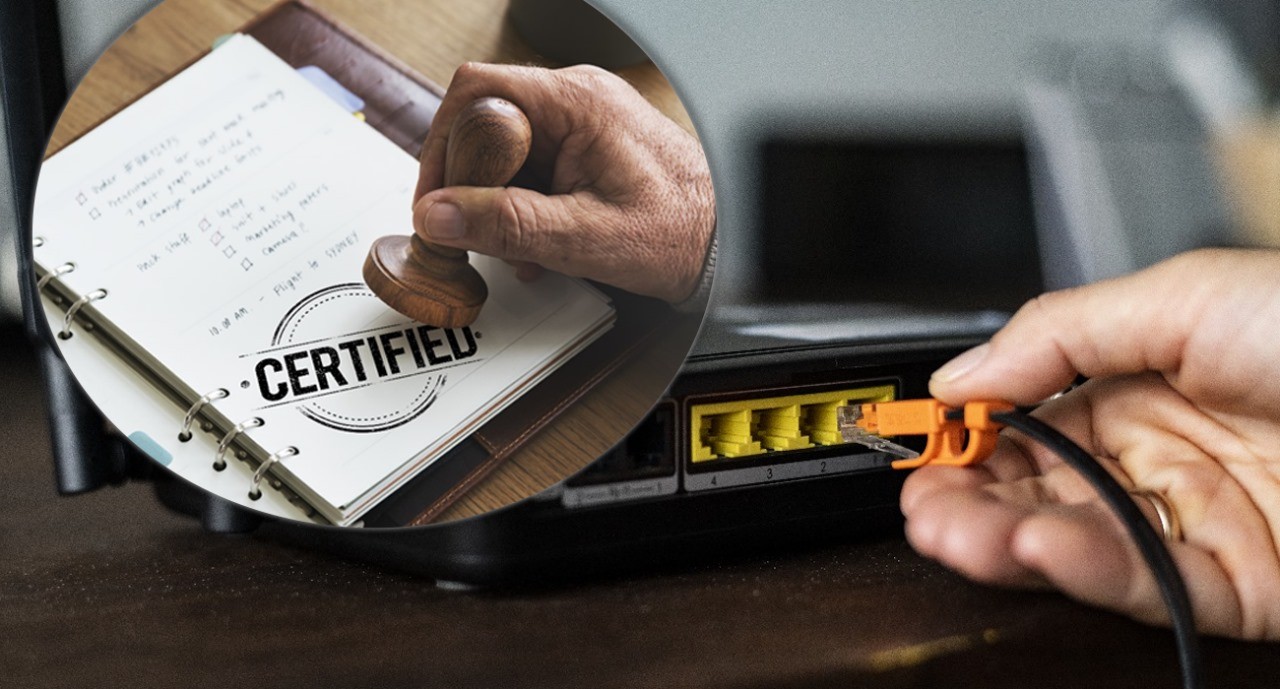Navigating the Path to Manufacturing and Certifying WiFi Routers: A Comprehensive Guide

The world is more connected than ever before, and the demand for high-quality WiFi routers is on the rise. If you're looking to step into the realm of manufacturing and selling WiFi routers and want to get them certified by government agencies like the Wireless Planning and Coordination (WPC) in India, you're in the right place. In this blog, we will walk you through the essential steps to successfully bring your WiFi routers to market while ensuring they meet the necessary regulatory requirements.

Step 1: Product Development and Prototyping
Before embarking on the certification journey, you must have a fully functional WiFi router that meets industry standards. This involves:
- Design and Development: Start with careful design and development, collaborating with wireless technology experts to ensure your WiFi router aligns with the latest standards for top-notch performance, speed, and connectivity.
- Prototyping: Create physical prototypes for rigorous testing, including hardware models that address form, ports, and cooling, and software prototypes mimicking the user interface and device compatibility.
- Compliance with Industry Standards: Verify compliance with industry standards,
ensuring your router operates within approved frequency bands, meets safety
requirements, and adheres to electromagnetic interference regulations before
seeking government certifications.

- Testing and Iteration: Rigorous testing of both hardware and software prototypes is crucial. Conduct a range of tests to ensure that your WiFi router meets performance benchmarks, security standards, and reliability criteria. This phase may involve multiple iterations and refinements to fine-tune your product.
- Documentation: Keep meticulous records of the design, development, and testing processes. This documentation will be crucial when you apply for certifications from government agencies.
- Cost Optimization: Throughout the development and prototyping phases, be mindful of manufacturing costs. Identify opportunities for cost optimization without compromising on quality. Efficient manufacturing processes will help make your product more competitive in the market.
Step 2: Regulatory Research
Understanding
the regulatory landscape is crucial. In India, the WPC is responsible for
certifying wireless products. Here's what you need to do: 
- Comprehensive Regulation Study: Thoroughly review the specific WPC regulations and guidelines applicable to your wireless product category. Understanding the technical and legal requirements is essential for a successful certification process.
- Product Classification: Determine the exact category or class under which your WiFi router falls within the WPC framework. Different product categories may have distinct certification criteria.
- Testing and Compliance: Identify the mandatory testing and compliance standards your product must meet. These standards may include technical specifications, electromagnetic compatibility (EMC) requirements, and safety standards.
- Documentation Requirements: Familiarize yourself with the documentation and paperwork needed for certification. This may involve technical specifications, test reports, schematic diagrams, and more.
- Application Process: Understand the step-by-step application process for WPC certification. This includes preparing and submitting the application, paying fees, and providing the necessary documentation.
- Authorized
Indian Representative: If your company is not based in India, appointing an
authorized Indian representative is advisable. This representative can act as a
point of contact with the WPC and facilitate communication during the
certification process.
Step 3: Testing and Certification
Once your product is ready, it's time to get it certified:
- Testing Laboratory Selection: Carefully select a testing laboratory that is accredited and recognized by the Wireless Planning and Coordination (WPC) authority in India. The laboratory should have expertise in conducting the specific tests required for WiFi router certification.
- Test Planning: Collaborate closely with the testing laboratory to plan the testing process. Define the scope of tests, test methods, and testing schedule to ensure efficiency and accuracy.
- Test
Execution: The testing laboratory will conduct a series of
tests, which may include electrical safety tests, radio frequency (RF)
performance tests, and EMC tests.

- Documentation Compilation: Compile all necessary documentation, including the test reports, technical specifications, schematic diagrams, and any other documents specified by the WPC for certification.
- Certification Issuance: Upon successful testing and evaluation, the WPC will issue a certification for your WiFi router. This certification confirms that your product complies with the applicable standards and is safe for use in India.
- Testing Criteria: Understand the specific testing criteria that your WiFi router must meet. This typically includes safety, performance, and electromagnetic compatibility (EMC) standards.
Step 4: Manufacturing and Quality Control
With the
certification in hand, you can move forward with manufacturing: 
- Manufacturing Partners: Partner with reliable manufacturing facilities to produce your WiFi routers at scale
- Quality Control Measures: Implement stringent quality control processes, including regular inspections, functional testing, and safety protocols.
- Documentation and Record-Keeping: Maintain detailed records of quality control procedures, audits, and any deviations from standards. These records are critical for demonstrating ongoing compliance with regulatory requirements.
- Continuous Improvement: Foster a culture of continuous improvement
within your manufacturing operations. Regularly review and update quality
control processes based on feedback, audit results, and emerging industry
standards.
Step 5:
Marketing and Distribution 
To succeed in the competitive market of WiFi routers, you need a solid marketing and distribution strategy:
- Build Your Brand: Establish a strong brand identity for your WiFi routers and create marketing materials to promote them.
- Distribution Network: Identify distribution channels and partners to reach your target market effectively.
- Customer Support: Provide excellent customer support, including troubleshooting assistance and warranty services.
Step 6:
Compliance Maintenance
Your
responsibilities don't end with the initial certification. To remain compliant:
- Stay Informed: Keep up to date with evolving
regulations and standards in the WiFi router industry.
- Firmware Updates: Regularly update the firmware
of your routers to address security vulnerabilities and performance improvements.
- Recertification: If your product undergoes significant changes or upgrades, you may need to go through the certification process again.
Conclusion
Manufacturing
and selling WiFi routers, while navigating the certification process with
government agencies like the Wireless Planning and Coordination (WPC) in India,
can indeed be a highly rewarding endeavor. However, it's important to
acknowledge that this venture demands meticulous planning, a steadfast
commitment to adherence to industry standards, and an unwavering dedication to
product quality. In the following sections, we will delve into each step of
this journey, highlighting its significance and offering guidance on how to
proceed.
To know more
about WPC Certification, visit www.ornatequality.com or contact us
at +91-9266333338.
Recent Posts
Cokion
Cokion Private Limited is an Indian multinational technology company focusing on e-commerce, technology services, online advertising & marketing, headquartered in Bengaluru, Karnataka, India. It has its subsidiary, Cokion Inc., headquartered in Albany, New York, USA.
Welcome to Cokion com., the ultimate online shopping destination tailored for the diverse needs of consumers across the world. At Cokion.com, we pride ourselves on providing a seamless and enjoyable e-commerce experience, offering a wide range of products and services to meet the unique preferences of our customers.
Key Features:
Extensive Product Selection: Discover a vast array of products ranging from electronics and fashion to home goods and more. Cokion.com curates a diverse collection to cater to every aspect of your lifestyle.
User-Friendly Interface: Our intuitive and user-friendly platform ensures a smooth navigation experience. Effortlessly browse through categories, find detailed product information, and enjoy a hassle-free shopping journey.
Secure Transactions: Your security is our priority. Cokion.com employs state-of-the-art encryption and security measures to safeguard your personal information and facilitate secure transactions.
Fast and Reliable Delivery: Enjoy prompt and reliable delivery services across the world. Cokion.com. is committed to ensuring your purchases reach you in a timely manner, enhancing your overall satisfaction.
Responsive Customer Support: Our dedicated customer support team is ready to assist you with any inquiries or concerns. Reach out to us via various channels, and we'll strive to provide swift and effective solutions.
Exclusive Deals and Promotions: Benefit from exciting promotions, discounts, and exclusive deals regularly offered on Cokion.com. Save more while enjoying the quality and convenience of our e-commerce platform.
Mission Statement:
At Cokion.com, our mission is to redefine the online shopping experience for our customers. We aim to become the go-to destination for individuals seeking quality products, exceptional service, and a platform that understands and meets your evolving needs.










